Culture
A Day in the Life: Regional Academic Manager Angelina Collazo-Young (They/Them/Theirs)
Written by Bannon Puckett on Jun 1, 2021
Related content: Diversity And Inclusion
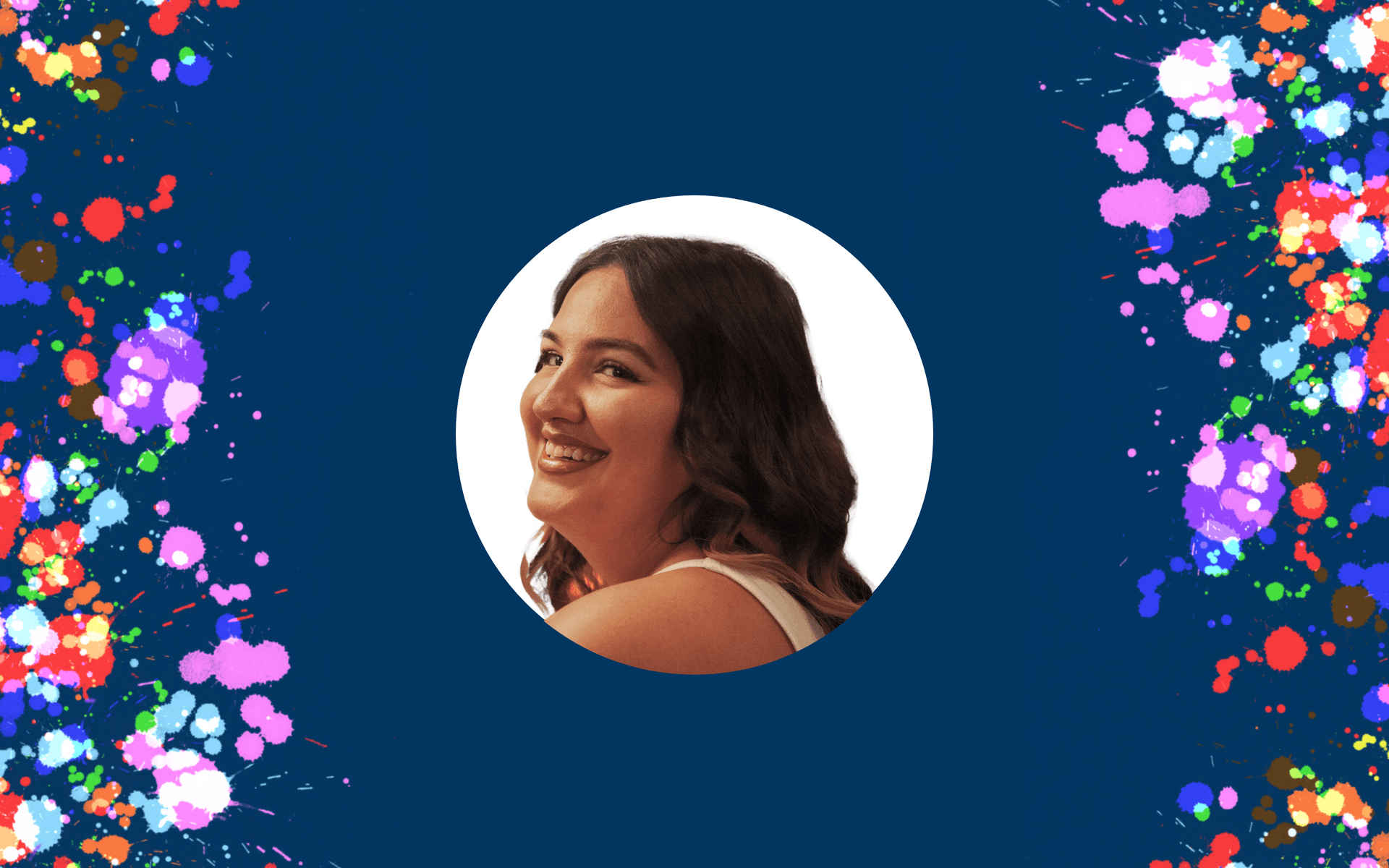
This story is a part of our “A Day in the Life” series that highlights the career journeys of 2U employees across the world. Throughout June, we’re celebrating Pride Month and featuring members of 2Q, the company’s Business Resource Network for LGBTQIA+ employees and allies.
Angelina Collazo-Young (they/them/theirs) lives life out loud.
“As the venerable philosopher Lizzo once said, ‘Love looks better in color.’ For me, that means it’s not only my right, but my responsibility to live my life and be myself out loud,” they say. “I have so many privileges afforded to me in this life, and to grey myself out or not live up to the full expression of myself would be taking those privileges for granted.”
Demanding this type of love and respect for themselves—and holding others accountable to the love and respect that everyone deserves—is an act of revolution, Angelina says: “That might look like correcting pronouns for myself or for other colleagues and friends, challenging some limiting beliefs that come up in a conversation, or even my very favorite thing: gassing people up when they do something amazing, especially when they act like it’s not a big deal.”
Over the past decade, Angelina’s career has consistently been about “gassing people up” and lifting them to new heights through education. But they admit they fell into the field of education by accident. “I graduated with my undergrad amidst the recession,” they say, “where even with a technical degree, it was difficult to find a job in what I studied, which was communication technologies.”
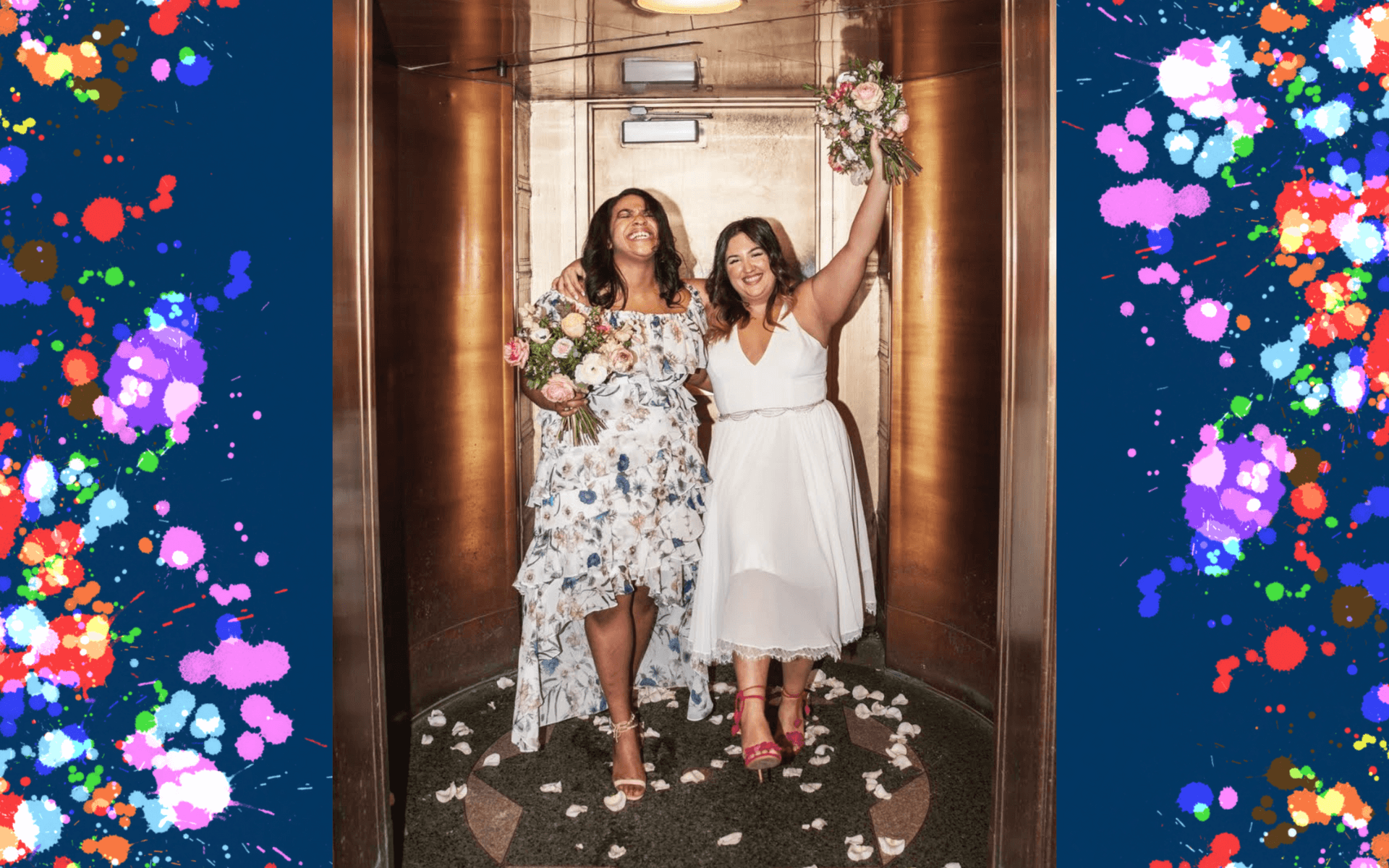
Turning to teaching special education and technology electives at a middle school, Angelina fell in love with teaching and learning and cultivated some of their most deeply held values. “I began working to support other teachers in building the skills around accessibility and inclusion,” they say, “and that started me on my path to where I am today.”
Prior to joining 2U last November, Angelina worked for five years with Teach For America (TFA) New York. They moved through virtually every part of the New York region, working on AmeriCorps funding and operations, coaching teachers, designing learning experiences, interacting with alumni, and hosting TFA’s version of 2U’s Business Resource Networks for staff and teachers. “My current position as a regional academic manager (RAM) really brings together everything I’ve been doing in education over the past almost-decade into one role,” they say.
Read on to learn more about Angelina’s role at 2U, which rapper is one of their daily inspirations, and what “Color Me Proud”—2Q’s theme for Pride Month this year—means to them.
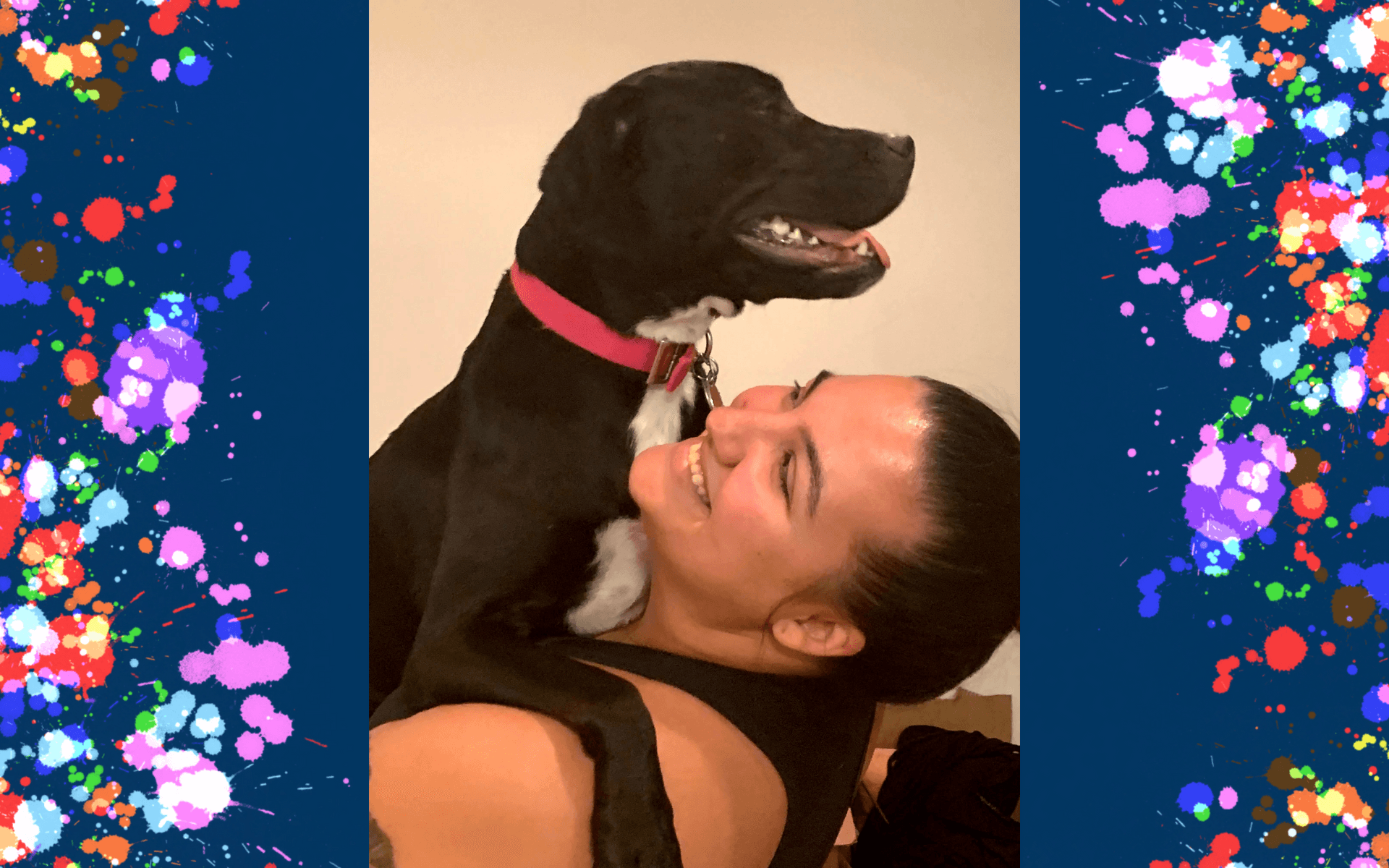
Why did you join 2U? What is it about the company that sparked your interest?
Since I hold accessibility as one of my values, the idea of “eliminating the back row” really resonates with me. The concept of providing world-class education to people—through boot camps, grad programs, short courses, etc., and making that information and learning accessible to people—absolutely drew me in.
How would you describe your role as a regional academic manager (RAM) at 2U?
So far, there are five of us, one RAM for each region of boot camps within the U.S. We’re responsible for placing the right instructors in the right settings to make sure that students are having the best possible learning experience. That includes checking out class data, working with recruitment and our student success managers (SSMs), figuring out what type of learning experiences would benefit the instructors, coaching—you name it.
My favorite part of my role is advocating for the instructional staff, which I see as my primary gig. With the addition of the RAM team, we now have capacity to build out systems that didn’t exist before, connect instructors with more opportunities, and uncover and address a lot more of their needs.
What do you find most rewarding about your job? How about the most challenging?
The most challenging things are definitely working within so many contexts at once, and not yet feeling like an expert in any of them. I work to connect the needs of so many stakeholders within the boot camp side of 2U, and they don’t always align. But I also really love puzzles, and getting that final piece is really gratifying.
Many of us have been, and still are, made to feel shame about who we are. Pride Month gives us the opportunity to reflect on how far we’ve come and how far we have to go, for ourselves and each other.— Angelina Collazo-Young, Regional Academic Manager at 2U
What’s your favorite part about working at 2U?
This is a place that’s not afraid to change! In my short time here, I’ve seen so many positive and impactful changes made, from using instant messaging workflows to streamline substitute instructor requests, to giant swooping changes like provisioning instructors with email addresses to improve their experience navigating our systems. I’ve worked within the nonprofit and public education spaces until now, where bureaucracy is king, and “the way we’ve always done it” always wins. This type of thinking and commitment to at least trying something to see if it works is refreshing.
What might you like to share about your “coming out/being out/being you” story or perspective?
I’ve decided recently that every time this question comes up, I want to use it as an opportunity to challenge our allies. It’s taken me my full lifetime to understand my own sexuality, and then boom—gender came out of nowhere and stepped into the mess, too. So many cisgender/heterosexual folk who are aspiring LGBTQIA+ allies haven’t done this type of reflection and work for themselves; not only is it imperative to building an equitable society, it’s so incredibly liberating!
So, I would love to challenge anyone reading this—anyone who’s curious to read how I came to be the person I am—to spend some time reflecting on how they became the person they are: Do they like this person? Is this person everything they wanted to be? Is this person holding anything back about themselves? We don’t typically ask cis/het people these types of questions, and it’s so repressing!

Why did you join 2Q and how have you been involved so far?
I’m so new to 2U that I haven’t been as involved in any of the Business Resource Networks as I would like to be—yet. I’ve joined 2Q, the Asian Pacific Islander Network (APIN), and TuGente for Latinx employees and allies so far, and I’ve been able to attend dance parties, coffee chats, and takeovers for 2U’s internal Daily Dose of Team Time (DDOTT), which I’ve loved. It’s really great to be in a place where, while not the front-and-center of our work, we see efforts of inclusion-centering. I joined 2Q to be able to connect with other LGBTQIA+ people and find that community within this massive organization. We spend so much of our lives at work, so making our workplaces somewhere that is welcoming, inclusive, and as fun as possible is really important to me.
What does Pride Month and “Color Me Proud”—2Q’s theme for June this year—mean to you? How do you plan on celebrating?
Many people use markers in the year to do their own personal reflection; think New Year’s, birthdays, sometimes new school years. I think Pride Month is an opportunity to do that—not only for those of us in the LGBTQIA+ community, but also for allies of the groups that the acronym represents. I think it’s important to note that we call this time Pride for a reason: I saw some genius on the internet say, “Pride isn’t the opposite of hate, it’s the opposite of shame.” If we reground in that purpose for Pride Month, I think we can really see the ways we help and harm each other and lean more fully into ourselves. We can also resist the pull of “rainbow capitalism,” which tries to erase our fights for equity by renaming them as a battle already won, since in the U.S. we now federally recognize that “Love is Love.”
Many of us have been, and still are, made to feel shame about who we are. This month gives us the opportunity to reflect on how far we’ve come and how far we have to go, for ourselves and each other. It’s an opportunity for us to dig into our queer history, and for those who seek to be allies, too. I think that’s especially relevant right now, during a pandemic, when many cis/het people are facing something our people have similarly faced—AIDS—since the ’80s.
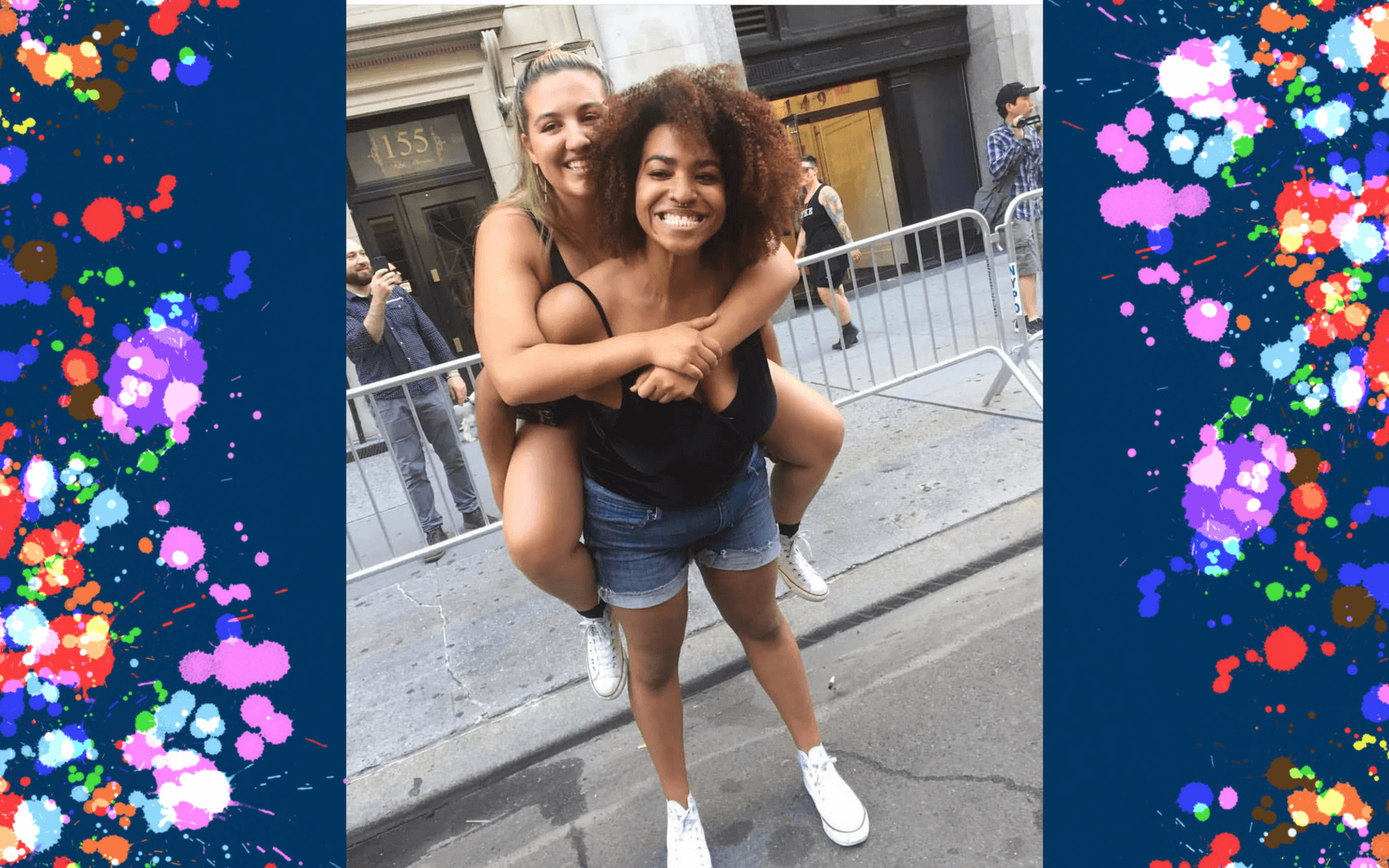
What is your perspective on the subject of intersectionality?
Over time, I’ve come to understand the intersections of my identity so much more. As a young kid, I was always around my Puerto Rican side of the family, and my dad instilled how important that identity was. As I got older and began thinking about my sexuality, and then my gender, it felt like those were layering on top, until I started learning about the actual concept of intersectionality. I have so many more intersecting identities, and what I think is so interesting is being able to reflect on how, in this American society, my identities are privileged to intersect with those that are marginalized, and how I’ve learned to navigate those identities or leverage them in different spaces.
One thing I love about holding so many different identities is being a connector—bringing communities together and sharing things I’ve learned, or things one community needs with others. Again, it’s all about access!
Are there any particular stories or issues related to equality or social justice that you’re passionate about?
There are so many things I could talk about here! At the root of all the equity issues we face today, I think it’s important to note how interconnected they all are, and how all forms of oppression really rely on us to be bought into white supremacy, capitalism, and remaining uninformed. It’s become so easy for us to spread misinformation and to buy into propaganda, but it’s been incredible to see how the power of the internet, social media specifically, has also allowed us to learn more, connect with people across our world, and challenge each other to show up better for ourselves and each other.
I couldn’t possibly pick one or even a handful of social justice/equity topics to highlight, because to do so would be against my belief that we have to enter the fight for liberation with all of it on our back. Our society often tells us we’re supposed to pick one focus and we’ll get to all the other things later, but that’s not actually how any of this works! When we center the humanity and needs of marginalized communities, we’re inherently making a better world for everyone else, too.
The perspective that I would love to share is how important it is for us to do our own research to build our opinions before we just share or repeat what we’ve read or heard. It’s so easy to fall into that trap, but we have to realize that even people who we admire and trust are wrong sometimes! We also have to push and lean into the power of our relationships to make real change. Revolution starts at home. Holding our families and closest friends accountable to be the best versions of themselves they can be: That’s affecting real change, every day for our communities, and that’s showing real love for your people.
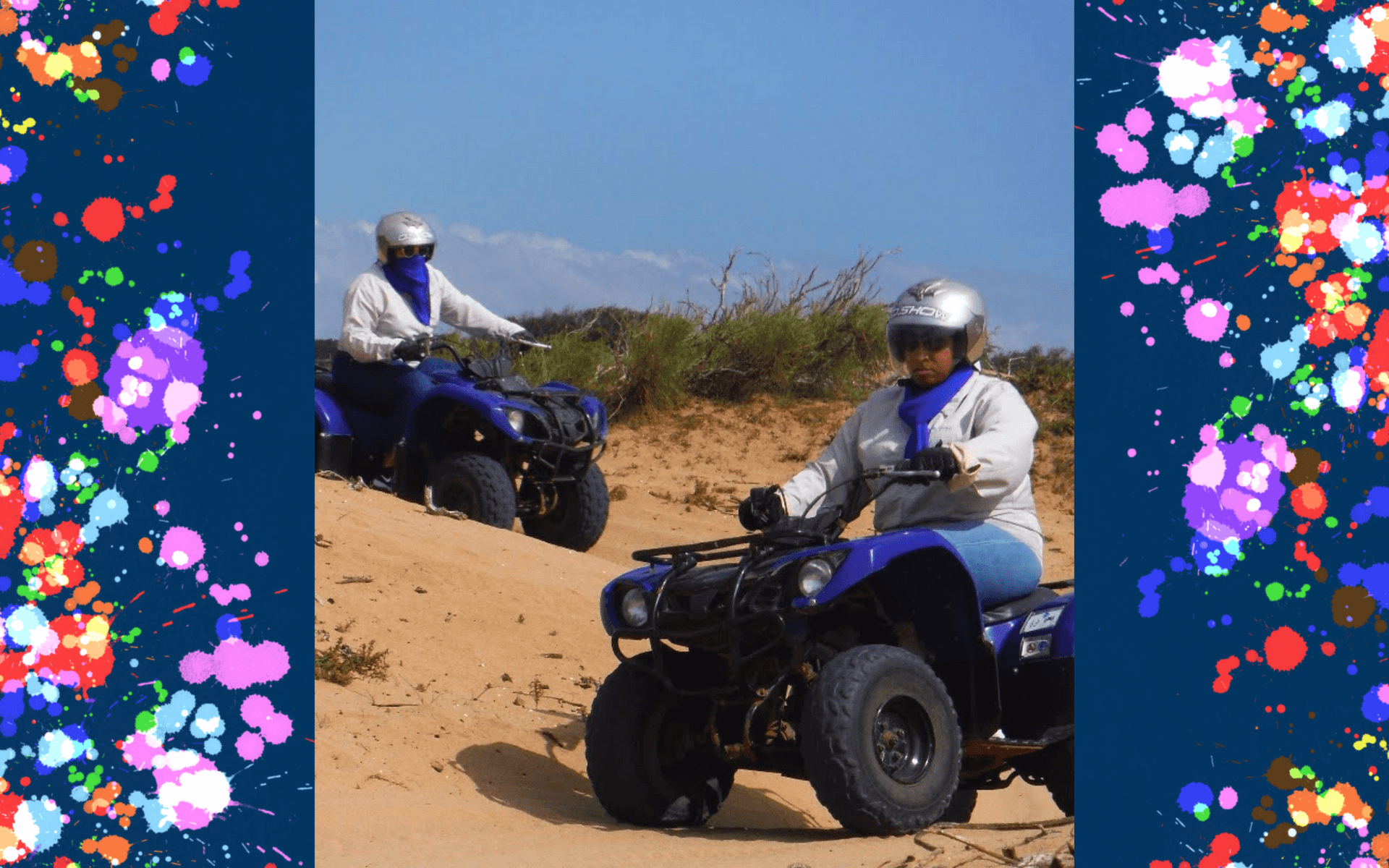
Out of everything you’ve done at 2U so far, what are you most proud of?
With the 4 other RAMs (shoutout to Alex, Corey, David, and Jamie!), we’ve co-founded an entirely new function within the Learning & Development Strategy team, which is not only incredible in its own right, but we’ve done it with such care and teamwork that I could not have expected. I’ve learned a whole new business and context, which has been so difficult after being at the same organization for over five years. Alongside my teammates, I’ve been able to be a strong advocate for instructional staff, especially the full-time instructors that I manage, which is incredibly important to me. I always say that one of my personality traits is being Fatman Scoop: I love to hype up my people, and I really ride for them and use that “Leo loyalty” (astrologically speaking) to be an advocate.
Ultimately, by this point, I think I’m showing up as my full, authentic self in all spaces, which can absolutely be a feat for someone with a lot of the identity markers I carry with me. So I’m trying to relish and give myself credit for that, celebrating how hard it can be in our society to be yourself. And to be doing that in a workplace where you’ve never even met anyone face-to-face is pretty lit.